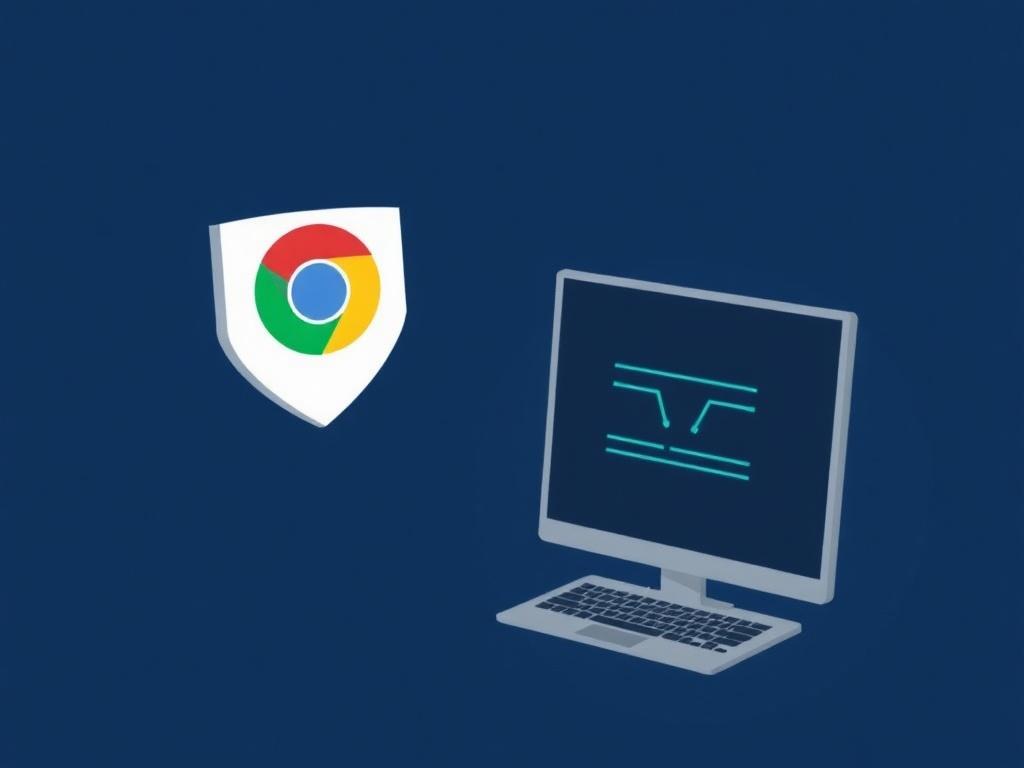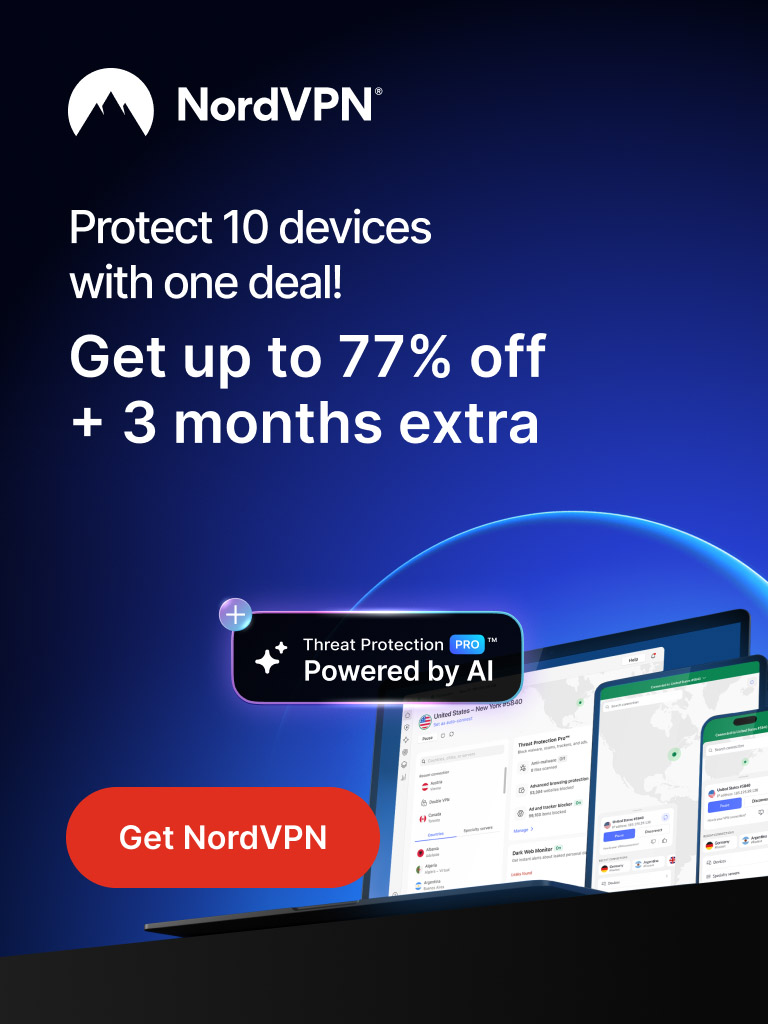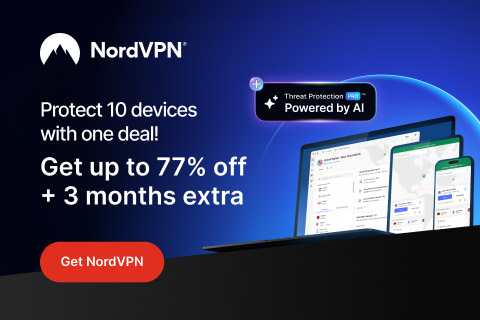Stay Private. Stay Secure. Stay Free.
Trusted by millions worldwide – protect your online life with #1 VPN
- ⚡ Blazing-fast speed on every server
- 🔒 Military-grade encryption & protection
- 🌍 Access content globally without limits
- 📱 Up to 10 devices with one account
If you’ve ever wanted to peek around the internet without leaving a breadcrumb trail, or watched an overseas show only to be told “this content isn’t available in your region,” you know the pain. A Chrome browser VPN extension can be the fastest, most convenient fix. But not all extensions are created equal. Some promise privacy and deliver tracking, while others slow your browsing to a crawl or lock key features behind a paywall. In this long, friendly guide we’ll walk through everything from what these tools actually do to how to pick, install, and use the chrome vpn plugin best suited to your needs. By the time you finish reading, you’ll feel confident choosing a vpn for chrome best suited to your mix of privacy, performance, and budget.
Why You Might Need a VPN for Chrome
A lot of people think a VPN is only for torrenting or streaming, but the truth is broader. When you add a chrome browser vpn extension to your toolkit, you’re adding a layer between your web activity and the sites you visit. That can mean hiding your IP address from ad networks, bypassing geo-restrictions, or protecting yourself on public Wi‑Fi. For many users, the vpn for chrome best option is not the most expensive service, but the one that balances speed, privacy, and usability.
Beyond privacy and bypassing restrictions, a top chrome vpn extension can help you:
- Prevent local network operators or ISPs from reading your unencrypted web traffic (especially useful on public hotspots).
- Avoid intrusive geofencing for services like video streaming or news sites.
- Protect login credentials and form data on insecure networks.
- Reduce targeted advertising by hiding your IP and location from trackers.
This is why the chrome vpn plugin best suited for you depends on what you want to protect and how you browse.
What a Chrome Browser VPN Extension Actually Does
Imagine a miniature VPN client built inside your browser. Unlike system-wide VPN apps that route all device traffic, many chrome vpn extensions only tunnel traffic originating from the browser. That has pros and cons. The main advantages are convenience and speed: installing an extension is usually faster, and because it handles only browser data, it can be lighter on performance. But if you want every app on your device protected, you’ll need a full VPN client in addition to your browser extension.
Core functions of a chrome browser vpn extension:
- Masking your IP address and showing a different location to websites.
- Encrypting browser traffic so intermediaries cannot read content.
- Offering a quick server switcher for geo-unblocking.
- Sometimes blocking trackers or ads via additional extension features.
How to Tell the Best VPN Addon Chrome from the Pretenders
Picking the best vpn addon chrome can feel overwhelming because the Chrome Web Store is full of options. Here are the main criteria to evaluate extensions and identify trustworthy choices.
Privacy and Logging Policies
The most important question: what does the provider log? A true privacy-first extension will have a clear no-logs policy and will be transparent about what data it collects (usually only minimal diagnostics). If an extension collects browsing history or DNS requests, it’s not delivering on privacy.
Jurisdiction and Transparency
Where a VPN company is based influences how easily it can be compelled to hand over data. Also look for independent audits, transparency reports, or public security assessments. These things increase trust and help you find the chrome vpn plugin best matched to privacy concerns.
Security: Protocols and Encryption
Check whether the extension uses modern protocols (WireGuard, OpenVPN, or proprietary but audited alternatives). Strong encryption matters because it prevents on-path observers—like ISPs or malicious hotspots—from reading your traffic.
Extension Permissions and Privacy Tradeoffs
Before installing, review the permissions requested by the extension. Many will ask to “read and change all your data on the websites you visit”—an understandable request for a browser-level VPN, but it’s also exactly the power that could be abused. Pair permission checks with trust signals (reviews, audits) before you proceed.
Speed and Server Coverage
A great chrome vpn extension won’t make your browsing painfully slow. Providers with large, well-maintained server networks generally give you better speed and reliability. For streaming and gaming, this is particularly important.
Usability and Extra Features
Look for ease of use: a simple on/off toggle, quick server lists, and features like split tunneling (if available), built-in ad-blocking, or WebRTC leak protection. The best vpn addon chrome is the one you’ll actually use every day.
Cost and Free vs Paid Options
Free extensions can be attractive, but many free VPNs come with tradeoffs: limited speeds, fewer servers, or data caps. Some monetize by selling aggregated user data or hosting ads. For consistent privacy and performance, a reputable paid service often beats a free alternative.
Quick Comparison Table: Top Chrome VPN Extensions at a Glance
| VPN Extension | Free/Paid | Browser Features | Streaming & Geo-Unblock | Privacy Notes |
|---|---|---|---|---|
| ExpressVPN | Paid (trial) | Easy toggle, many locations, WebRTC leak fix | Excellent | No-logs, audited |
| NordVPN | Paid (trial) | Quick connect, Threat Protection, split tunneling (app) | Excellent | No-logs, audited |
| Surfshark | Paid (budget) | Unlimited devices, CleanWeb ad-blocker | Very good | No-logs, audited |
| ProtonVPN | Free & Paid | Privacy-first, limited free servers | Good (paid) | Strong privacy stance |
| Windscribe | Free & Paid | Generous free tier, ad-blocking | Mixed | Collects minimal logs |
| Browsec | Free & Paid | Simple, fast for general browsing | Decent | Basic privacy |
Top Chrome VPN Extension Picks — Detailed Reviews
Choosing a single extension from the list can be hard. Below are friendly, practical reviews for some of the most trusted names in the space, focusing on how well they work as a chrome browser vpn extension.
ExpressVPN Extension — Speed and Reliability
ExpressVPN is frequently recommended as a top chrome vpn extension because it pairs a polished extension with a robust desktop client. The extension acts as a remote control for the desktop app, which means it inherits system-level protections like a kill switch. This is ideal if you want the best possible protection across the whole device and the convenience of controlling it from the browser.
Pros:
- Very fast servers for streaming and downloads.
- Excellent global server coverage.
- Strong privacy policy and independent audits.
Cons:
- Pricier than some competitors.
- Extension requires the desktop app for full functionality.
Use case: If you want a chrome vpn plugin best for streaming and general privacy and are willing to pay a premium, ExpressVPN is a great choice.
NordVPN Extension — Security and Extra Tools
NordVPN provides a feature-rich chrome vpn plugin best known for its security add-ons like Threat Protection (which blocks trackers and malicious sites) and double VPN servers. The extension complements the desktop client and works well for users who want a strong privacy posture without complicated setup.
Pros:
- Great performance and unblocking capabilities for streaming.
- Threat Protection helps with ads and tracking.
- Clear no-logs policy and audits.
Cons:
- Some advanced features may require the desktop client.
Use case: Ideal for users looking for the best vpn addon chrome for privacy-minded browsing and streaming.
Surfshark Extension — Value and Convenience
Surfshark has built a reputation as a budget-friendly, fully featured option. The chrome browser vpn extension is easy to use and includes CleanWeb, which blocks ads and trackers. Notably, Surfshark offers unlimited simultaneous connections, so you can protect many devices with one subscription.
Pros:
- Unlimited devices on a single account.
- Competitive pricing with strong feature set.
- Good streaming performance.
Cons:
- Some servers can be inconsistent during peak times.
Use case: If cost and convenience matter, Surfshark is often the best vpn addon chrome for families or multiple-device households.
ProtonVPN Extension — Privacy-First with a Free Option
ProtonVPN is developed by the same team behind Proton Mail and emphasizes privacy. The extension is straightforward and backed by a strong privacy culture. A limited free tier exists, making it an attractive starter option as you evaluate vpn for chrome best choices.
Pros:
- Transparent privacy stance and independent reviews.
- Free tier for casual users.
Cons:
- Free tier has limited speed and server choices.
Use case: Best for privacy-conscious users who want a trustworthy free or paid chrome vpn extension.
Windscribe Extension — Generous Free Tier and Extras
Windscribe’s extension goes beyond simple VPN functionality by offering ad and tracker blocking as well as flexible “locations” for free users. Its free plan provides a generous monthly data allowance compared with many competitors.
Pros:
- Generous free data for light users.
- Built-in ad and tracker blocking.
Cons:
- Paid tier still necessary for high-bandwidth streaming.
Use case: If you want a capable chrome vpn plugin best suited for casual privacy and ad-blocking on a budget, Windscribe is worth checking out.
Browsec and Browser-Focused Options
Extensions like Browsec are designed specifically for browser-level VPN functionality and are simple to install and use. These can be great if you only need browser protection, but they may not offer the same level of transparency or server speed as larger paid services.
Pros:
- Very easy to use and quick to install.
- Good browser-only performance for casual browsing.
Cons:
- Less robust privacy guarantees; often limited server choices.
Use case: Good for simple, occasional browsing needs where you want the chrome vpn plugin best suited to casual users.
How to Install a Chrome Browser VPN Extension — Step-by-Step
Installing a browser extension is usually painless. Here’s a reliable procedure to follow to keep things safe and efficient.
- Decide whether you want a browser-only extension or a desktop client + extension combo (desktop apps often provide better protection).
- Open the Chrome Web Store and search for the provider’s official extension by name to avoid fake copies.
- Check developer details, reviews, and the number of users. Look for the official vendor and a high review count.
- Click “Add to Chrome” and review the permissions. If the extension requests unusually broad access, pause and do more research.
- After installation, sign in to your account (or create one). If the extension requires the desktop app, install it from the provider’s official site.
- Choose a server and enable features like WebRTC leak protection or ad-blocking if provided.
- Run a quick leak test at sites like ipleak.net or dnsleaktest.com to confirm your IP and DNS are masked.
Tips for Installation Safety

- Always download extensions from the official Chrome Web Store and confirm the publisher is the VPN company.
- Beware of clone extensions with similar names that aim to trick users.
- Keep the extension updated to receive security patches and feature improvements.
Using Your VPN Extension: Best Practices and Everyday Tips
Installing is just the start. To really get the most out of a chrome vpn plugin best practice is to build a few habits.
When to Turn It On
You don’t need to be connected to a VPN all the time, but consider turning it on when:
- Using public Wi‑Fi or untrusted networks.
- Accessing geo-restricted content or services.
- Shopping online or accessing sites that might track pricing based on location.
Split Tunneling and Browser-Only Protection
If you only want to protect browser traffic, a chrome vpn extension is ideal. Split tunneling (if available) lets you send some traffic through the VPN and keep other apps on your regular connection. Recognize the difference: a browser extension often only protects Chrome, not other programs.
WebRTC and DNS Leak Protection
Browsers can leak your IP via WebRTC or DNS requests if the extension doesn’t properly guard against it. Make sure your provider’s extension includes WebRTC leak protection or that the extension is used alongside a trusted desktop client.
Performance Tips
- Choose a server geographically close to you for lower latency.
- If one server is slow, switch to another in the same region; congestion varies by server.
- Use lightweight ad-blocking features to reduce load times and tracking.
Free vs Paid Chrome VPN Extensions — What to Expect
Free extensions can be great for trialing a service, but they often include tradeoffs:
- Data caps or limited speeds.
- Fewer server locations and less reliability.
- Potential monetization through ads or aggregated data sales (less common among reputable free providers).
Paid services typically offer consistent speeds, stronger privacy guarantees, and more features. If privacy is a high priority, a paid provider with a verified no-logs policy is usually the better long-term choice.
Common Mistakes and Myths About Chrome VPNs
People often assume a VPN makes them completely anonymous or that any extension labeled “VPN” is trustworthy. Here’s what to know:
- A VPN hides your IP but doesn’t erase the data you voluntarily give a website (like logging into an account).
- Browser extensions that aren’t tied to a reputable VPN provider may be proxies in disguise and can harvest data.
- Using a VPN doesn’t absolve you from legal responsibilities. Illegal downloads or harmful activities remain subject to law.
Being aware of these helps you make smarter decisions about which chrome vpn extension to trust.
Troubleshooting Common Extension Issues
If your chrome VPN extension isn’t working, try these fixes:
- Restart Chrome or the computer—sometimes extensions need a fresh start.
- Ensure the extension is up to date and that you’re signed in to the provider if required.
- Clear browser cache and cookies; sometimes stale data interferes with sessions.
- Check for conflicts with other privacy or ad-blocking extensions—disable them temporarily to test.
- Run an IP/DNS leak test to confirm the extension is actually masking your address.
Streaming and Torrenting: What the Best Chrome VPN Extension Offers

If streaming is your main reason for installing a chrome browser vpn extension, look for proven unblocking performance. Top streaming services actively block many VPNs, so choose providers with a reputation for bypassing geo-restrictions. That said, browser-only extensions sometimes struggle with full streaming compatibility because some players and apps detect system-level IPs. For torrenting, remember that browser extensions typically won’t protect torrent clients; use a full VPN app if you need P2P protection.
Checklist for Streaming-Friendly Extensions
- Dedicated streaming servers or documented success with popular platforms.
- Good speed and low latency.
- Clear privacy commitments to avoid logging your streaming habits.
Legal and Ethical Considerations
Using a chrome vpn extension is legal in most countries, but not everywhere. Some nations limit or ban VPN use, so always review local laws. Ethically, a VPN should be used to protect privacy and access content responsibly—avoid using it to break terms of service or commit wrongdoing.
Privacy Checklist: Questions to Ask Before Installing
Before you click “Add to Chrome,” ask:
- Who runs this extension, and do they run the desktop VPN too?
- Do they have a no-logs policy and any independent audits?
- What permissions does the extension request, and are those permissions reasonable?
- Does the provider publicly disclose server ownership and security practices?
- Are there transparent options to cancel and get a refund if you’re not satisfied?
Answering these will help you pick a chrome vpn plugin best suited to both practical needs and privacy expectations.
Real-World Scenarios: Which VPN Extension to Choose
Here are a few scenarios to help match needs to options:
- For streaming and gaming: ExpressVPN or NordVPN for performance and consistent unblocking.
- For budget-conscious multi-device households: Surfshark for its pricing and unlimited device policy.
- For privacy-first users who want a free trial: ProtonVPN for its transparency and free tier.
- For casual browsing and ad-blocking without heavy use: Windscribe or Browsec’s free tiers.
Mix-and-Match Strategy
Some users keep a paid VPN account for desktop-level protection and use a lightweight browser extension for quick location changes. This approach can give you speed when you need it and comprehensive protection when you want it.
Future Trends: What to Expect from Chrome VPN Extensions
The VPN landscape evolves. Expect to see:
- More privacy-focused features built into browser extensions (like tracker and fingerprinting defenses).
- Tighter auditing and transparency from providers as users demand proof of privacy claims.
- Improved integration with streaming platforms via optimized servers.
- Continued competition on price, pushing better features into more affordable plans.
Choosing a chrome vpn plugin best for you today means considering not only current features but the provider’s track record and direction.
Summary Table: Quick Decision Guide
| Your Priority | Recommended Extension Type | Why |
|---|---|---|
| Best performance for streaming | Premium paid extension (ExpressVPN, NordVPN) | Faster servers and reliable unblocking |
| Budget & many devices | Value provider (Surfshark) | Unlimited devices and good features for the price |
| Free & privacy-respecting | ProtonVPN or Windscribe free tiers | Reasonable privacy guarantees without cost |
| Simple browser-only protection | Browser-focused extensions (Browsec) | Easy setup and quick usage for casual browsing |
Final Thoughts Before You Install
When you search for “vpn for chrome best” or try to find the “chrome vpn plugin best” on the Web Store, rely on a mix of objective checks and personal needs. Read privacy policies, verify audits, and test speed and streaming performance with free trials. The best vpn addon chrome for someone else might not be your ideal choice, so prioritize what matters: privacy, speed, price, or convenience.
Conclusion
Choosing the best chrome vpn extension is a balance between trust and convenience: look for transparent privacy policies, audited services, and a solid reputation, and prefer providers that clearly state what they log (or don’t) before you install; whether you select a premium service like ExpressVPN or NordVPN for speed and unblocking, a value leader like Surfshark for unlimited devices, or a privacy-first free option like ProtonVPN or Windscribe, always vet the extension permissions, test for leaks, and match the tool to your real needs so you get the vpn for chrome best suited to how you browse.

